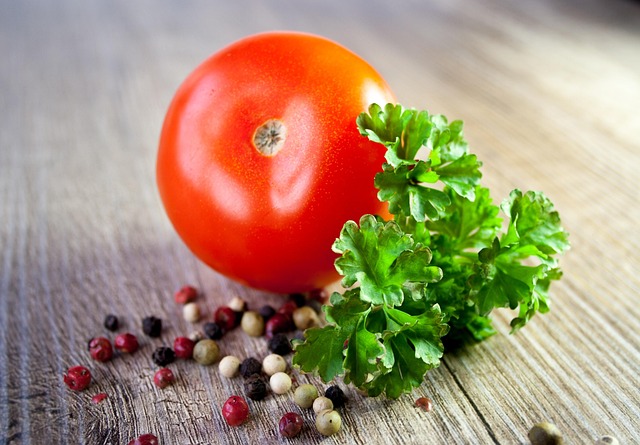Senior diet Eugene Oregon poses challenges due to financial, mobility, and health barriers. Tailored nutrition access is crucial for well-being, requiring local resources like non-profit programs (e.g., Lane County Food Bank) offering home meals, senior center dining, and education. Government initiatives such as SNAP and ENP support vulnerable seniors. Collaboration between community organizations, government agencies, and local farms creates sustainable solutions through accessible programs, gardens, markets, and educational workshops to improve dietary security and social connections for Eugene's elderly population.
“In Eugene, Oregon, addressing senior food insecurity is paramount to ensuring our community’s well-being. This comprehensive guide explores the unique challenges faced by elderly residents in securing adequate nutrition. We delve into local resources, from community programs offering meals and support to government benefits designed to aid at-risk seniors. By understanding the issues and leveraging available networks, we can advocate for sustainable solutions, ultimately improving the dietary security of our senior citizens in Eugene.”
- Understanding Senior Food Insecurity in Eugene Oregon
- Local Resources for Seniors Facing Dietary Challenges
- The Role of Community Programs in Addressing Hunger
- Accessing Government Benefits for Nutrition Support
- Building a Network of Support for At-Risk Seniors
- Advocating for Sustainable Solutions to Food Insecurity
Understanding Senior Food Insecurity in Eugene Oregon

Senior food insecurity is a pressing issue in Eugene, Oregon, where many elderly residents face challenges in accessing adequate and nutritious meals. This problem often stems from limited financial resources, mobility issues, or health conditions that make shopping for food difficult. In Eugene, where the cost of living can be high, seniors may struggle to afford healthy diets that meet their nutritional needs.
Understanding senior diet requirements is crucial in addressing this issue. Elderly individuals have distinct dietary needs due to age-related changes in metabolism and health. They often require more protein, vitamins, and minerals to maintain overall health and prevent chronic diseases. Providing access to affordable, nutritious food tailored to these specific needs is essential for ensuring the well-being of Eugene’s senior population.
Local Resources for Seniors Facing Dietary Challenges

In Eugene, Oregon, seniors facing dietary challenges have access to a range of local resources designed to ensure nutritious meals and overall well-being. Non-profit organizations like the Lane County Food Bank offer senior-specific programs that provide not only food but also nutritional education and support services tailored to meet the unique needs of older adults. These initiatives include home delivery of fresh, balanced meals, ensuring seniors can access healthy options without the hassle of shopping or cooking.
Additionally, local senior centers and community organizations host meal programs where seniors can gather for nutritious meals and social interaction. These programs not only combat hunger but also foster a sense of community, addressing the isolation that often accompanies aging. With a focus on promoting healthy eating habits, these resources are instrumental in improving the dietary security of Eugene’s senior population.
The Role of Community Programs in Addressing Hunger

Community programs play a pivotal role in addressing hunger among seniors in Eugene, Oregon. These initiatives are designed to support vulnerable individuals by providing access to nutritious meals and essential dietary resources tailored to their specific needs. Many non-profit organizations and local government agencies offer senior diet programs that cater to various aspects of nutrition, including meal delivery services, food banks, and educational workshops on healthy aging diets.
By leveraging community efforts, Eugene has made significant strides in combatting food insecurity among seniors. These programs not only alleviate hunger but also foster social connections and promote active lifestyles. They empower seniors with knowledge about balanced diets, ensuring they receive the proper nutrition to maintain their health and overall well-being.
Accessing Government Benefits for Nutrition Support

Senior citizens in Eugene, Oregon, facing food insecurity can take advantage of various government benefits designed to support their nutritional needs. The Supplemental Nutrition Assistance Program (SNAP), formerly known as food stamps, offers grants for purchasing food at authorized retailers. This program is a powerful tool for seniors on limited incomes, helping them access affordable and nutritious meals.
Additionally, the Elderly Nutrition Programs (ENP) provided by the Oregon Department of Human Services ensure that vulnerable seniors receive proper nutrition. These programs often include meal delivery services, community meals, and nutrition education, all tailored to meet the unique dietary requirements of older adults. By leveraging these government initiatives, Eugene’s senior population can improve their access to a balanced diet and overall well-being.
Building a Network of Support for At-Risk Seniors

In addressing senior diet and food insecurity in Eugene, Oregon, one of the most effective strategies is building a robust network of support. This involves collaborating with local community organizations, non-profits, and government agencies to create a safety net for at-risk seniors. By pooling resources, knowledge, and volunteers, these partnerships can expand access to affordable, nutritious meals and essential nutrition education tailored to the unique needs of elderly residents.
The network should focus on creating accessible programs that cater to cultural preferences and mobility issues common among seniors. This could include home delivery services for meal packages, community dining events, and educational workshops on healthy eating habits tailored to senior palates. Such a collaborative approach ensures no senior in Eugene is left behind, fostering a supportive environment where access to proper nutrition becomes a shared priority.
Advocating for Sustainable Solutions to Food Insecurity

In addressing senior food insecurity in Eugene, Oregon, it’s crucial to move beyond temporary aid and advocate for sustainable solutions that empower our elderly population. This involves tackling the root causes, such as limited access to affordable and nutritious senior diets. By promoting community gardens, fresh food markets, and educational programs focused on healthy eating habits, we can foster self-sufficiency among seniors.
Collaborations between local farms, food banks, and community organizations are essential in developing sustainable food systems tailored to Eugene’s senior population. Encouraging intergenerational sharing of knowledge and resources not only enhances nutrition but also strengthens social connections, contributing to the overall well-being of our elderly citizens. These efforts ensure that seniors in Eugene have consistent access to nutritious meals, promoting a healthier and more vibrant community.






